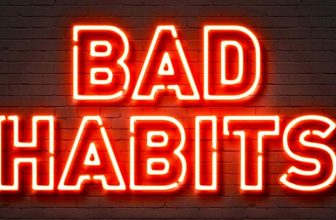
Do you eat to make yourself feel better or to ‘get rid of’ stress? Do you find yourself rushing to the pantry when you’re feeling depressed or angry? It is common to find comfort in food, but unhealthy emotional eating is more likely to cause overeating and then damage your digestive system. Follow this article to understand what emotional eating is and how you can reframe it so that you eat ‘comfort’ food in a healthy way. Comfort Eating: Overeating, Heartburn / Acid Reflux and 5 Ways to Avoid It.
Facts about Emotional (or Comfort) Eating
Food is frequently consumed not only for nutritional value or to satisfy hunger but also for social or psychological reasons. Before we discuss comfort eating, we should figure out what it is and the difference between that and real, or legit physical hunger.
Physical vs. Emotional Hunger: 4 Ways to Distinguish the Difference
In general, emotional eating is when you eat to make yourself feel better, rather than to feed your stomach.
This impact is contingent on the meal size and content being similar to what you desire, are used to, and require. High sugar, salt, or fat meals, such as chocolate, potato chips, soft drinks, and snack foods, are well-known comfort foods. They trigger dopamine release into the body, providing benefits such as pleasure, stress alleviation, and pleasant sentiments.
Gender and age might have an impact on what individuals eat for comfort. Guys, according to research, like hot, handmade comfort foods like steaks and casseroles. Chocolate and ice cream are popular among females. Younger people choose sweeter or saltier snack foods, whereas elderly people prefer foods that are associated with meals.
Unhealthy Comfort Eating & Overeating
We have to admit that some foods have a positive calming effect on human emotions, however, workplace stress, money difficulties, health challenges, and relationship problems might all cause a sense of emptiness or an emotional vacuum which produces negative feelings, leading to emotional eating.
Food is thought to be a way to temporarily replace emptiness by providing a false sense of “fullness” at this time. People who unhealthily comfort eat, often prefer to suppress and soothe negative emotions by overeating. They may even feel guilty or ashamed after eating in this manner, which can lead to a cycle of overeating and other problems, such as triggering heartburn and acid reflux.
We will talk about this in more detail in the next part. Besides, neurotransmitter pathways are down regulated when you eat a lot of these foods regularly (which means more food is needed to achieve the same effect) which leads to further overeating as well.
What Happens When You Overeat?
So how can you determine whether you are overeating? It occurs when you consume more calories than your body actually requires to function. So, find out and check against a table on the recommended daily calorie intake for your weight, age, metabolism, degree of physical activity, and gender.
You can find this information on your local Dietary Guidelines.
Overeating Triggers Heartburn / Acid Reflux
At first, let us figure out the principles of triggers heartburn and acid reflux
Although the causes of heartburn are varied, the effects of overeating on your stomach cannot be ignored. This is because when there is a lot of food in the stomach, it stays bloated.
We know that there is a muscle called the oesophageal muscle, located between your oesophagus and your stomach. The lower esophageal sphincter, or LES, is a muscle that connects your oesophagus to your stomach, allowing food to flow from your mouth to your stomach.
The more bloated your stomach is, the more probable the LES will not seal properly. It can’t keep food and stomach fluids from coming back up into the oesophagus if it doesn’t shut, which results or even aggravates your heartburn and acid reflux.
Tips for Reducing Overeating & Acid Reflux
If you suffer from overeating and acid reflux, here are some tips to help you:
1. Choose Healthy Comfort Food
- Instead of a lollipop, eat a piece of fruit
- Using a banana or strawberries and low-fat milk, make a nutritious smoothie
- Snack on nuts or dry fruit in half-handful amounts
- When you’re not hungry but need a snack, munch on carrots or celery sticks
(These snacks give you energy without making you feel uncomfortably stuffed)
2. Pre-plan for Eating
If you plan your meals for the week rather than reacting to emotional desires, you’ll be more likely to make thoughtful eating choices.
3. Concentrate on Your Emotions
- Allow yourself to feel emotions unrelated to eating. Take a few moments each day to consider how you’re feeling and whether it’s causing you to want food in an unhealthy way.
- Some good questions you could try to ask yourself: ‘How am I feeling?’, ‘How do I know when I’m the most stressed?’, ‘Am I aware of my actions around food when I’m stressed?’
4. Start again
Don’t be too hard on yourself. Don’t allow a negative day or moment to carry over into the next. This will just increase the likelihood of emotional eating. Start again from the minute you realize you’ve fallen into the trap of emotional eating.
5. Put a Note on the Fridge at Home
When you rush to the fridge every time, ask yourself: ‘Is this visit to the fridge an emotional or physical visit?’ to remind yourself of only eating when your stomach actually feels hungry.
We introduced some techniques and exercises for stopping acid reflux in my previous article, feel free to check them out and apply them for yourself. Here are more things you can try to help you fix acid reflux.
Eating for comfort can alter your mood and emotional state. It decreases alertness and irritation while offering some level of peace of mind. People use comfort eating to cope with stress, worry, boredom, loneliness, or dissatisfaction, but too much comfort eating can quickly get hazardous for your health.
If you ‘have to’ comfort eat, do so only with the food types that are conducive to your health! Another way to go about it is to ‘frame your mind’ with the right interpretations of what you’re eating. Eg. frozen lemon bio yogurt + simple, healthy oat biscuits combined, taste similar to cheesecake, but (in moderation) won’t harm your health. So use little-but-powerful mental hacks to get around your comfort eating challenges! Got some other mental hacks for comfort eating? Let us know in the comments below, and join in the conversation on Facebook, Twitter & Instagram!









